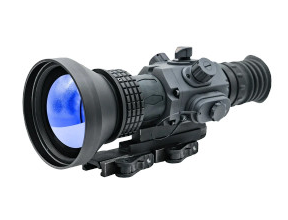What Are the Different Types of Random Word Generators?
Random word generators are useful tools in a variety of contexts, from creative writing to games and education. They generate words based on a set of rules, parameters, or completely randomly. These tools come in handy for writers experiencing a creative block, teachers designing exercises, or game enthusiasts seeking to spice up their sessions. There are many different types of random word generators, each tailored for specific uses. Let’s explore some of the most common ones and their applications.
1. Basic Random Word Generators
The most straightforward type of random word generator is a tool that selects words from a pre-defined list or database at random. These generators are simple, quick to use, and often have broad applications. They can generate words from any language, with no restrictions on word length, meaning, or complexity. Basic random word generators are especially useful in activities like brainstorming sessions or writing exercises where users need a bit of inspiration.
Applications:
- Creative Writing Prompts: Writers can use these tools to generate words that spark creativity, helping them overcome writer’s block.
- Vocabulary Building: Language learners can use basic random word generators to discover new words and practice them in sentences.
- Icebreaker Activities: In educational or corporate settings, facilitators can use these tools for interactive group activities.
2. Customizable Word Generators
Customizable random word generators give users more control over the types of words they generate. These tools allow users to set specific criteria such as word length, part of speech, difficulty level, or even themes. This is particularly helpful for more focused activities, such as creating puzzles or educational exercises, where users may want to limit the results to certain categories.
Key Features:
- Word Length Settings: Users can choose to generate only short words, medium words, or long words, depending on the nature of the activity.
- Part of Speech Selection: Users may want to generate only nouns, verbs, adjectives, etc.
- Theme or Category Selection: Some customizable generators allow users to focus on words from specific topics, like sports, food, or technology.
Applications:
- 20 Words or Less Game Generator: Many users seek bold tools that allow them to generate a specific number of words for creative games like “20 Words or Less.” These generators are ideal for designing challenges or prompts with strict word limits.
- Word Puzzles and Games: Teachers or puzzle creators can use these generators to focus on specific kinds of words to design educational or recreational word puzzles.
- Targeted Vocabulary Learning: Language learners can focus on a particular area, such as generating only verbs or adjectives, making the learning process more efficient.
3. Random Sentence Generators
While most random word generators focus on single words, random sentence generators create entire sentences. These tools can be especially useful in creative writing, language learning, and even humor. By constructing sentences based on predefined grammatical structures and random words, these generators can offer surprisingly coherent or amusing outputs.
Key Features:
- Grammar-Based Construction: Sentences are generated using grammatically correct structures, though the meaning may be nonsensical or quirky.
- Customizable Complexity: Some generators allow users to set the complexity of the sentence, adjusting the number of words, clauses, or sentence length.
Applications:
- Writing Prompts: Random sentence generators can help writers by producing bizarre or creative sentences that spark new ideas.
- Language Practice: Learners of a second language can use sentence generators to practice understanding and constructing sentences.
- Entertainment: Random sentence generators often produce funny or nonsensical results, making them great for entertainment in social settings or online challenges.
4. Random Phrase Generators
Unlike sentence generators, random phrase generators focus on shorter chunks of language that don’t necessarily follow full grammatical rules. Phrases might be idiomatic, descriptive, or even humorous. These generators are ideal for quick inspiration and can help with more targeted writing prompts, marketing slogans, or artistic projects.
Key Features:
- Idiomatic Expressions: These generators may include common phrases or idioms, adding an element of surprise and fun.
- Descriptive Phrases: Users can generate phrases that describe actions, feelings, or objects, useful for creative writing or marketing.
Applications:
- Slogan Creation: Marketers can use random phrase generators to brainstorm catchy slogans for campaigns.
- Creative Writing: Writers can use phrases to add flair to their stories or poems.
- Game Development: These generators can help game designers create unique catchphrases or dialogue snippets for characters.
5. Niche Word Generators
Niche random word generators cater to specific fields or hobbies. These generators might focus on technical jargon, fantasy names, scientific terms, or other specialized categories. Their utility lies in their specificity, making them valuable for users with particular needs, such as writers of genre fiction, educators in specialized fields, or game developers.
Key Features:
- Domain-Specific Vocabularies: These generators are loaded with words specific to fields such as science, engineering, fantasy, or even fictional languages.
- Fantasy Name Generators: Some niche tools focus specifically on creating names for characters, places, or objects in fictional worlds.
Applications:
- Science Education: Teachers can use generators to introduce students to scientific terms and concepts in a fun and interactive way.
- Fantasy Worldbuilding: Writers and game designers working on fantasy or science fiction settings can use these generators to name characters, places, or even magical items.
- Technical Writing: For those in specialized fields like law or medicine, niche generators can help with learning or recalling field-specific terms.
6. Rhyming Word Generators
Rhyming word generators are designed to help poets, songwriters, and other creatives by providing lists of words that rhyme with a given word. These tools are often used in artistic endeavors where rhyme schemes are important, such as in poetry, music, or even certain forms of storytelling.
Key Features:
- Rhyme Scheme Support: Users can input a word and receive a list of rhyming words, organized by syllable count or rhyme quality.
- Phonetic Search: Some generators use phonetic algorithms to match rhymes more effectively.
Applications:
- Poetry and Songwriting: These generators are invaluable for crafting poems, lyrics, or rhyming dialogue in creative works.
- Children’s Learning: Rhyming word games can help young learners develop phonological awareness, a key skill in language acquisition.
- Game Creation: Rhyming challenges in games like charades or improv theater can use rhyming word generators for added fun.
7. Random Name Generators
Random name generators are a subset of random word generators specifically designed to produce names for people, places, or fictional characters. These generators are particularly useful for authors, game designers, and even parents searching for baby names. They often include options to select names by gender, culture, or specific stylistic traits.
Key Features:
- Cultural or Language-Specific Names: Many name generators allow users to focus on names from particular countries, ethnic groups, or languages.
- Fictional Name Generators: Some tools specialize in generating fantasy or sci-fi names, helping creators of fictional universes.
Applications:
- Character Creation: Writers and game designers can quickly come up with unique names for characters in their stories or games.
- Place Names: Worldbuilders can use these generators to create names for cities, countries, or landmarks in their fictional settings.
- Baby Names: Expectant parents can use random name generators to discover unique or meaningful names for their children.
8. Random Word Generators for Games
Some random word generators are specifically designed for gaming purposes. Whether for party games, role-playing games, or word-based board games, these generators often include options for generating words that suit specific game mechanics.
Key Features:
- Word Limit Settings: For example, a 20 words or less game generator can limit the number of words generated for specific gameplay challenges.
- Game-Specific Vocabulary: Some generators focus on generating words that are relevant to the theme or setting of the game, such as fantasy or sci-fi genres.
Applications:
- Party Games: Games like Pictionary or charades benefit from random word generators to keep things fair and challenging.
- Role-Playing Games: Dungeon masters can use random word generators to come up with names, places, or events for their campaigns.
- Word-Based Board Games: Games like Scrabble or Boggle can use random word generators to introduce new challenges or variations.
9. Random Word Generators for Educational Use
In the classroom, random word generators can be employed to make learning fun and interactive. Teachers can use these tools to create quizzes, vocabulary challenges, or writing prompts. They can also help students practice spelling, grammar, or creative thinking.
Key Features:
- Educational Themes: Generators focused on school subjects like history, science, or literature can produce subject-specific terms.
- Level-Appropriate Words: Some generators allow teachers to select words based on grade level or difficulty, making them suitable for different student groups.
Applications:
- Spelling Bees: Teachers can generate random words to use in classroom spelling competitions.
- Creative Writing Exercises: Students can be assigned random words to incorporate into short stories or essays, encouraging creativity and problem-solving.
- Vocabulary Quizzes: Random word generators can be used to create vocabulary quizzes tailored to specific subjects or learning levels.
Conclusion
Random word generators are versatile tools with a wide range of applications across creative, educational, and entertainment sectors. Whether you need a 20 words or less game generator for a fun challenge or a niche word generator for specific writing projects, these tools are designed to inspire, entertain, and educate. From customizable features to domain-specific vocabulary, there’s a random word generator out there for nearly every need.
click Here to visit the website



